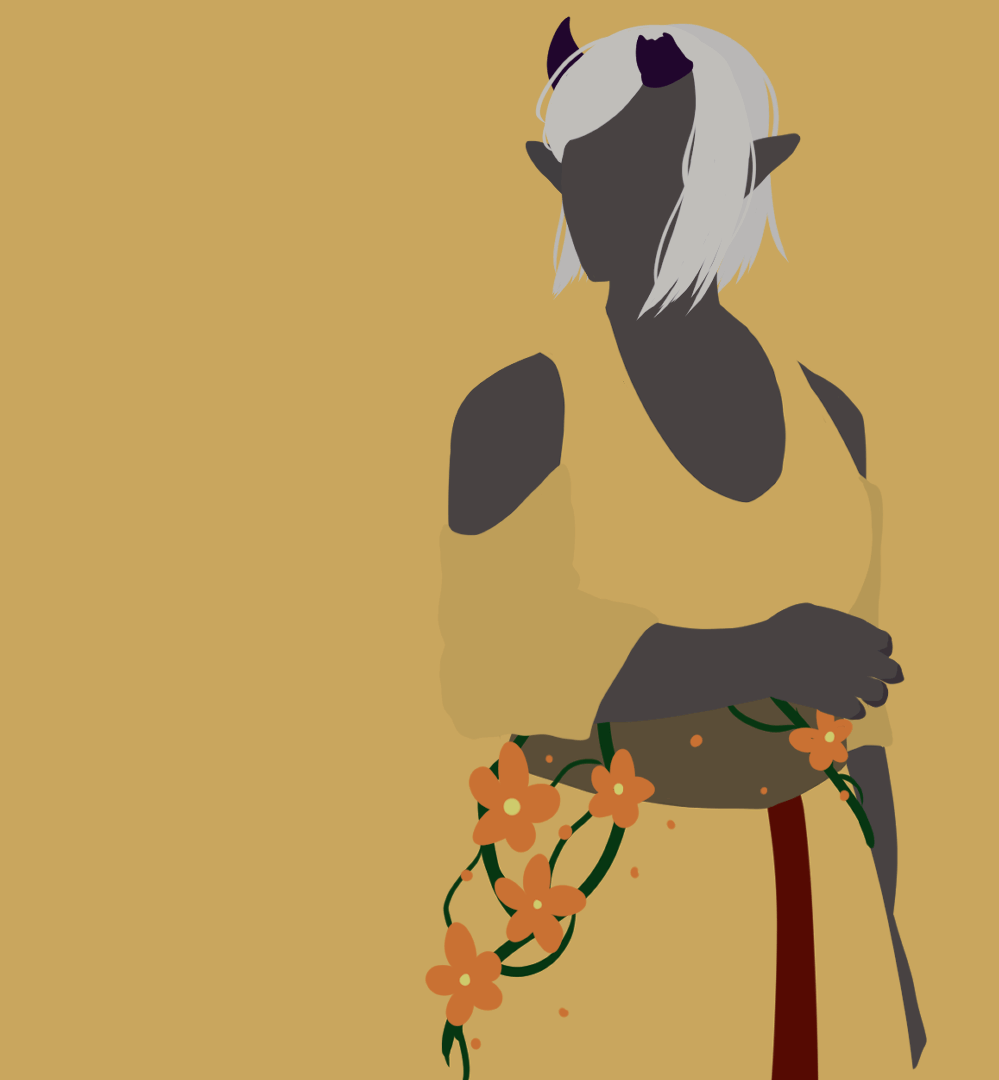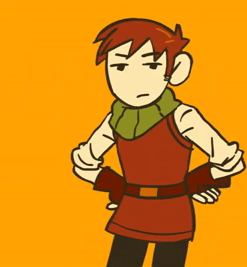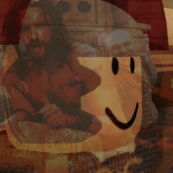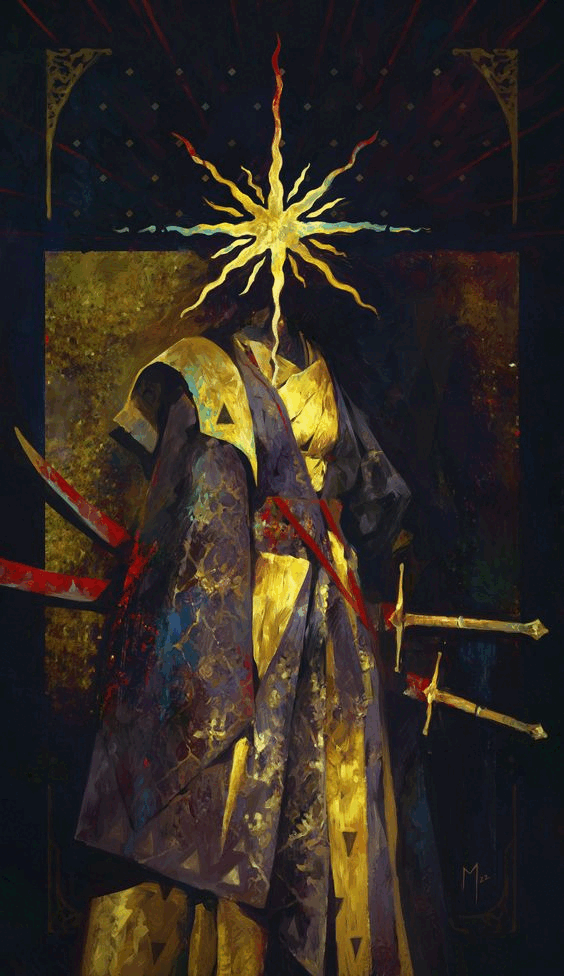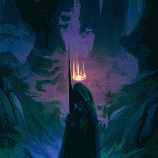-
Posts
2888 -
Joined
-
Last visited
Reputation
2633 Divine
About Swgrclan
-
Rank
It's just right.
Contact Methods
-
Minecraft Username
§
Profile Information
-
Gender
Male
-
Location
§
Character Profile
-
Character Name
§
-
Character Race
§
-
It's pretty pathetic that everyone clings to babying character protection rules that have evidently eviscerated efforts to produce genuine and consistent roleplay through LoTC's lifetime, and that nearly seven years after LoTC had sprung into existence, people are still obsessed with themselves to such a degree that they would rather ruin everyone else's fun in order to satiate their own poisonous, stubborn effort to free their characters of all consequence. You know what's also pathetic is that I'm pinned down by people who don't even know what they're talking about in the first place, and instead of getting a grip and understanding that I actually was only incentivized to hurry up and produce this update after being lazy about it for two years (looks like two years of no ****-ups can be blamed for that) they instead misconstrue this as a personal attack. Someone's poor decisions had given me the idea that yeah, I should get around to posting this, but they are not the source of it. Me not having written these rules into the lore in the first place are the source of it.
-
If killing someone solved the issue of their involvement in something worked, then I don't think this - or any moderation-oriented lore - would be necessary. Unfortunately, we have to take these steps in order to preserve something easily gained because of an immunity to death. If permanent death is the great equalizer, and there is a deliberate lack of enforcement in it, then it throws a lot of things out of wack. I would rather not lay down and have two years of effort slapped around and hijacked. A good way to convey the issue in the situation would be this: I play a Druid. Maybe one day, this Druid gains interest in shapeshifting. Shapeshifting is a rare thing to see among Druids, and is afforded a degree of secrecy based on consistent IC actions to covet it. I proceed to become involved in the right channels to work my way towards gaining Shapeshifting-- and then someone who oversees who get it IC comes and kills my character. However, I do not allow my character to die, and even moreso remain involved in the situation that had led to my character being able to progress toward getting Shapeshifting. Everything the individual trying to keep me from Shapeshifting does is futile, as without the incentive to PK, I'm able to learn Shapeshifting through another source and completely abandon the more respectable route of PKing my character, thus allowing the consistency in the roleplay to flourish. A lot of my insistence for PKing here is mostly based on personal belief, but even then, the situation here wouldn't have spun out of control if Torkoal had stayed away from the Thulean deal all-together, and understood the idea that to persist in any roleplay ultimately connected to the one who killed her character to prevent her involvement was disrespectful, inconsistent, inconsequential and blatantly disregarding of the roleplay itself.
-
I'm not digging your high horse, big guy. No, recent events surrounding Thuleanism in general had only incentivized me to get around to writing this -- because when you're presented with a situation where certain individuals cannot actually be stopped in weaving themselves into the group that exists to preserve the subject in question (Thuleanism), to the point where even murdering them is ineffective (redundant monk rules), having something like Thuleanism being loose and free doesn't go so well because conventional means to keep it as secret and coveted as it has been the past three years don't even work in the first place. So rather than letting the risk of Thuleanism being turned into, as I stated, a pass-around-magic equivalent, I'm suggesting these relatively forgiving terms to prevent that. Mitto is someone who would be receiving the means to moderate the Feat, this is not just something I'll be touting around myself. I think I made it pretty clear what kind of people I want handling Thuleanism, Torkoal, and it's not people who cling to babying revival rules so that they can continue to make an effort to join into the thing they were killed to keep them out of IC in the first place. When I told you that PKing your character would have been a better route to take than doing what you have been, I also mentioned in regards to our event-related squabbling that you could attend everything resultant of Quillian's sacrifice on another character -- and that's the very same thing you could have done instead of sticking to your guns and casting consistency to the wind in order to get something you wanted. If another character of yours eventually became involved with the group controlling this method, and they didn't **** up that time around, then the situation would not be as unpleasant as it is.
-
First of all, it's not a magic -- it's two magics being used together, but only brought into a more detailed fold as to ensure that there's an identity surrounding the combination of Druidism and Blood Magic. Considering the context of its very origin, those who were entrusted with it, and what parameters are needed in the first place to learn it, of course its numbers are low; they have been low, intentionally, because it has been a set of abilities consistently moderated and controlled purely through trust on an IC basis. Am I obligated to spread this to 15 different people for the sake of spreading it? Of course not. Have I ever planned to keep it confined to a handful of people? No, but it's remained that way because the group controlling it has been explicitly selective and careful in the proceedings in teaching new people. I even had formed a nice following of around five people, but because of in character events and a general preoccupation with real life they were not able to be brought into the fold. I'm not sure what context you're presenting in saying it's "squandered", but it's probably the worst time to have suggested that, because Thuleanism has just been used to kickstart an eventline that has the potential to bring about a great deal of roleplay, and that roleplay preceding the start of this story arc had all been conducted with the use of Thuleanism. I do not owe anyone, especially people who don't know what they're talking about, access to something thats gained through roleplay alone. Bending to some kind of arbitrary idea where something rare must absolutely have a consistent and plentiful is spineless and would lead to the same problems that this proposal intends to fix in the first place, especially since it's not even a magic in the first place.
-
Basis Thuleanism’s original lore [https://www.lordofthecraft.net/forums/topic/153194-%E2%9C%93-thulean-druidism-the-fury-in-nature/?tab=comments#comment-1447104] was written without defined teaching guidelines and moderation methods, so in order to prevent an uncontrollable situation from sprouting up where the method becomes something like a “pass-around magic” and where the undefined teaching parameters make way for either intentional or unintentional abuse, a set of potential rules will be presented here while being split into the sections “Teaching” and “Moderation”. Teaching In order for a Thulean to teach another Druid Thuleanism, they must first be at least T4 in both Blood Magic and Druidism, and the student must be at least T3 in both Blood Magic and Druidism. Thuleanism will be defined as a magical feat which is applied for after reaching these parameters. Moderation The Thulean Feat is able to be forcibly removed from a Druid who had been approved for its use if the disconnector in question is T5 in both Blood Magic and Druidism. This is not a ritual or process that requires a dedicated lesson from a teacher, but rather an automatic attribute gained upon reached T5 in both magical fields while being approved for the Feat. Upon being banished from Thuleanism’s use, there is a time gap of 3 IRL months before it can be relearned through another Thulean and approved as an application. Revocation of Thuleanism demands a Blood Magic oriented ritual that can be roleplayed up to the conductor’s discretion. The subject must be either forcibly bound into the ritual circle or knocked unconscious throughout the entire procedure. Until further notice, this is all that appears necessary.
-
because this has already existed for the past 2 years and I'm not interested nor aware of any documentation the old nip culture has
-
they're not called katanas you ******* blunch
-
[ https://www.youtube.com/watch?v=1vqCbb-xr6w ] [ https://www.lordofthecraft.net/forums/topic/144122-the-godless-lodge-of-yulthar/?tab=comments#comment-1356070 ] [ https://www.lordofthecraft.net/forums/topic/139531-xionism-the-way-of-primeval-man/?tab=comments#comment-1317839 ] This is a basic set of guidelines and concepts surrounding how a player may take advantage of the recent event-driven first-generation migration of Yultharans; LoTC’s cultural counterpart to real-life Japanese. This guide will be frequently updated. Antiquity: The Yultharans are said to have descended from an Eastern peoples known as the Oyashima, who in modern day are known for having shattered an Eastern-Aeldinic society known as the Cathant. In ancient times, Oyashima migrants landed upon the southern shores of a land known as Athera, whereupon they migrated further east until they found themselves able to comfortably settle in a land of valleys they would come to coin as Yulthar. In their time of migrancy, the early Yultharan peoples were inspired by the many cultures they witnessed throughout Athera. Many aspects were adopted into their own ways, affecting aspects of their identity from architecture (a very “western” or Gothic style) to formalities to even weaponsmithing. What was once a people whose ways could have been considered graceful, if in a foreign way, were now anchored down by ideals of independence and sturdiness, for in the unknown land they settled there were no friends or allies they looked to. On an undated day, four entities known as Old Lords came upon the Yultharans, shrouded in darkness, and imparted unto them a scripture that dictated that they should question all things that comprise their world, for theirs was a world unrightfully reigned over by Gods. Dissent against the Gods, they say, and your mortality shall be truly realized. They departed upon this, and never again returned. Come many hundreds of years later, when the Abyss took shape to the west, the ancient scripture given to the Yultharans was fully realized as truth. In the time before the Abyss took shape, all manner of evils began to sprout from the dark corners of Yultharan territory; rising from the further, unseen east, the north, the south, the west. Beset on all sides, the Godless peoples were forced into a corner. Demons and unholy beasts, of which cannot truly be described as to exemplify their abhorrent variation, fell upon Yulthar in an effort to devour all humane peoples that dwelled there; but through equated ferocity and mortal fervor, they were driven back time and time again. The stalwart nation of Yulthar warred with Demons and beasts for decades-- throughout centuries onward. Their ways became ones forged by brutality, where all notions of peacefulness and ideals of reaching one’s satisfaction in life were replaced by an unkind, bitter dogma; kill all that which converge upon sacred Yulthar, or be killed. Latter-Day: These Demons and beasts, having set upon Yulthar so plentifully and for so long, forced them into such a vicious conflict that it wore down upon the isolated society in whole, and gradually forced it to fragment into many small, displaced and only loosely unified by their antideific ideals and their desire to exist in a world that would not have them. What was once the nation of Yulthar is now merely the Lodge of Yulthar, where a culture of beasthunting is maintained, and few men subscribe to lifestyles that deviate from training for one thing -- to utterly decimate all threats that rear their head in their native homeland. With the advent of the Abyss, the ancient keepers of Old Lord scriptures came together to form a Godless covenant headed by an essential pontiff, known as the Highvicar. Only one Highvicar has reigned over Yultharan beliefs, known only as Mezame; believed to have kept himself alive throughout centuries through secrets revealed in their coveted doctrines. It is through the Highvicar that some form of unity is retained throughout Yulthar, ensuring that men and women still fight their eternal enemies, the Demons and the beasts, for the sake of their own survival. Culture: The ways of the modern Yultharan are grim, unkind, xenophobic and hateful, for they believe their ills to have been perpetuated by the will of cowardly Gods, and that these very same Gods are the ones who control the world they live in. The Yultharan is violent, humorless, relentless and unbudging from beliefs they had been dredged in since childhood, though among these harsh adaptations, silver linings can be seen. An almost obsessive focus on honor is imprinted throughout Yultharan society, where it is consistently preached that if a man abandons notions of honor and integrity, then he may as well be as low as the creatures they have fended off for centuries; and the only regard that these creatures gained from Yultharans was the hateful edge of a sword. Anything considered artistic or broken off from the usual violence of Yultharan ways are nonetheless infused with their grim outlook on life in the end. Every musical note is dire, every painted depiction is unsettling, every formation of architecture is stoney and colorless. Even their language, which had deviated from Oyashiman dialects overtime, has become harsh and aggressive. In place of fantastical, fictitious stories are straightforward guides and tomes of knowledge on how to do everything one requires to survive in Yulthar to the point; manuals aplenty. Armor and weaponsmithing in Yulthar had become a prime subject of labor in their Demon hunting days, and had been influenced a great deal much like their architecture and other parts of their culture. For example -- the Oyashiman katana, which is a known Eastern blade, had been modified in its model and method of creation until what is known as a kurenza, or “cleanser”, had been conceived; a heavier, more sabre-like blade that lacks grace but makes up in its ability to match common weapons like longswords. The unique style of a kurenza is conveyed by its lack of a sharp tip; all focus is spent on ensuring the edge is as sharp as possible, as Yultharan swordsmiths idealized cleaving an enemy apart so they may perish from bloodloss or trauma rather than focusing on pinpoint, precise methodology in swordplay. The armor of Yultharans, though uncommon among the plentiful impoverished or “laboring caste”, focuses on tying sturdy, thin sheets of metal plating together over several vestments and garb while ensuring whole pieces of plate armor are utilized as scarcely as possible. However, on behalf of the majority of Yultharans being both empty-handed in wealth and raised up to kill anything that threatens their immediate vicinity, many of them take to fashioning improvised armor from the scraps they find in old battlefields or even around their own homesteads. This has instilled a common strategy among those tasked to be Demonhunters where they convey their brutality through sheer, ferocious speed and dexterity-- cutting apart their foe without giving them a chance to recover or recoup, without tiring themselves in the process. This has made demon hunting far more successful in their realm than in older times, where they had previously employed heavier armaments under the belief they would be protected from the might of beasts. They soon learned otherwise. OOC Guidelines: As this is a Japanese-oriented culture, Yultharan characters are free to use Japanese dialects in a tasteful fashion during RP, and may name themselves in a Japanese fashion, but it must be ensured that one does not portray their character as some cheery, distasteful otaku-centric anime character. The Yultharan are nothing short of vicious and unkind, and systematically root out all signs of weakness from their own people to ensure they do not fall into a state of degeneracy, and thus, cultural lethargy. It is preferable that Yultharan characters follow at least a very basic degree of Xionist belief. This does not suggest one subscribe to Xionism’s Dark Art centric set of beliefs, as in Yultharan culture magic is either vilified or regarded in a sacrosanct measure, where the latter only happens when the Highvicar and his followers achieve “miracles” with the obscure, dark ritualism they partake in. Current Events: [3/26/18] For the first time ever, the Lodge of Yulthar had been provoked by foreign mortal entities that did not consist of simple barbarian tribes or brigands alone. With the recent seasons having revealed a lower influx of invasive beasts to slay, a coalition of military might had been formed and contingencies of Yultharan warriors were assembled to march toward two specific locations: one in a land known as “Atlas”, where the Cursed Descendants settle, led by the infamous elite band of warriors known as the Seven Sons of the Red Sun, and another larger force toward a far more distant land -- Aeldin. It is unclear as to exactly why and how either lands had been subjects of provocation.
- 10 replies
-
10
-
Could you PM me your Discord, please?
-
hello there you saucy minx













.thumb.jpg.bb0eb6382da4f3926585664f310d9c21.jpg)


